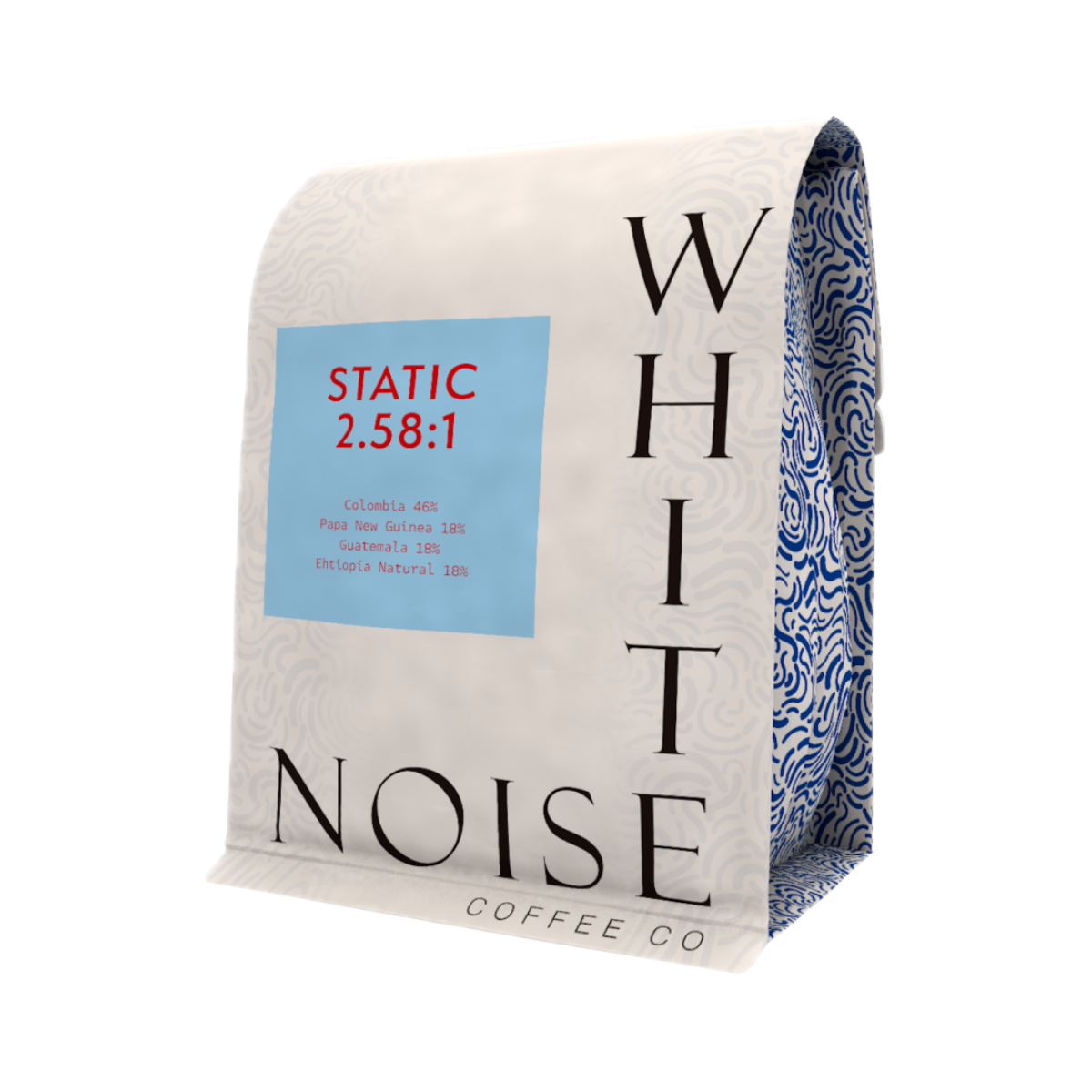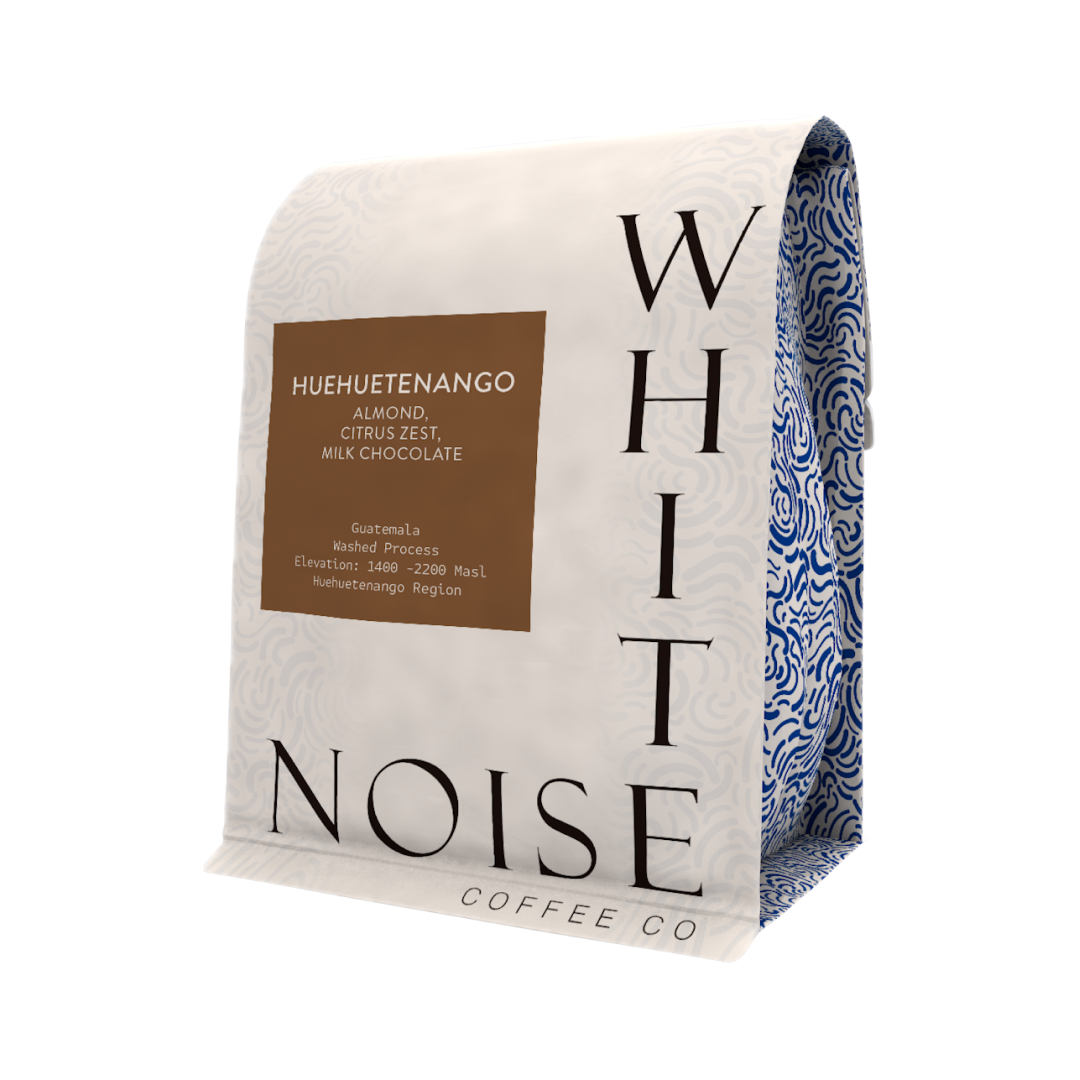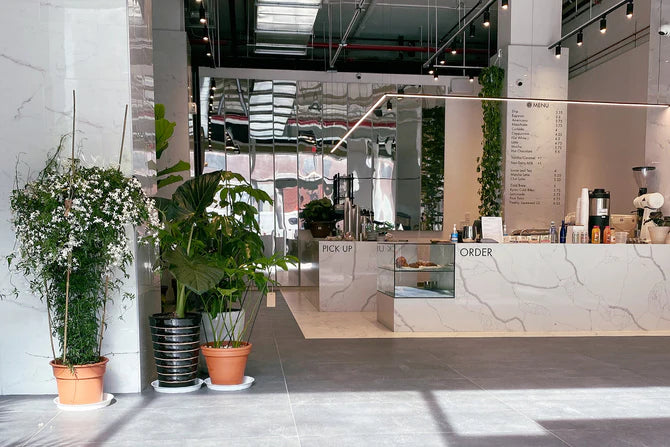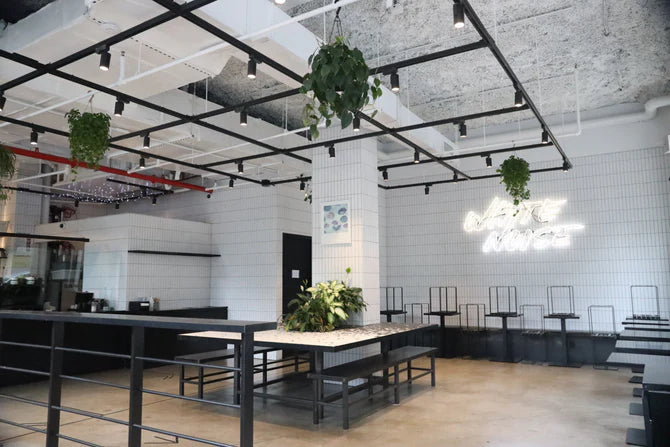Coffee vs. Energy Drinks: Which One is Better for You?
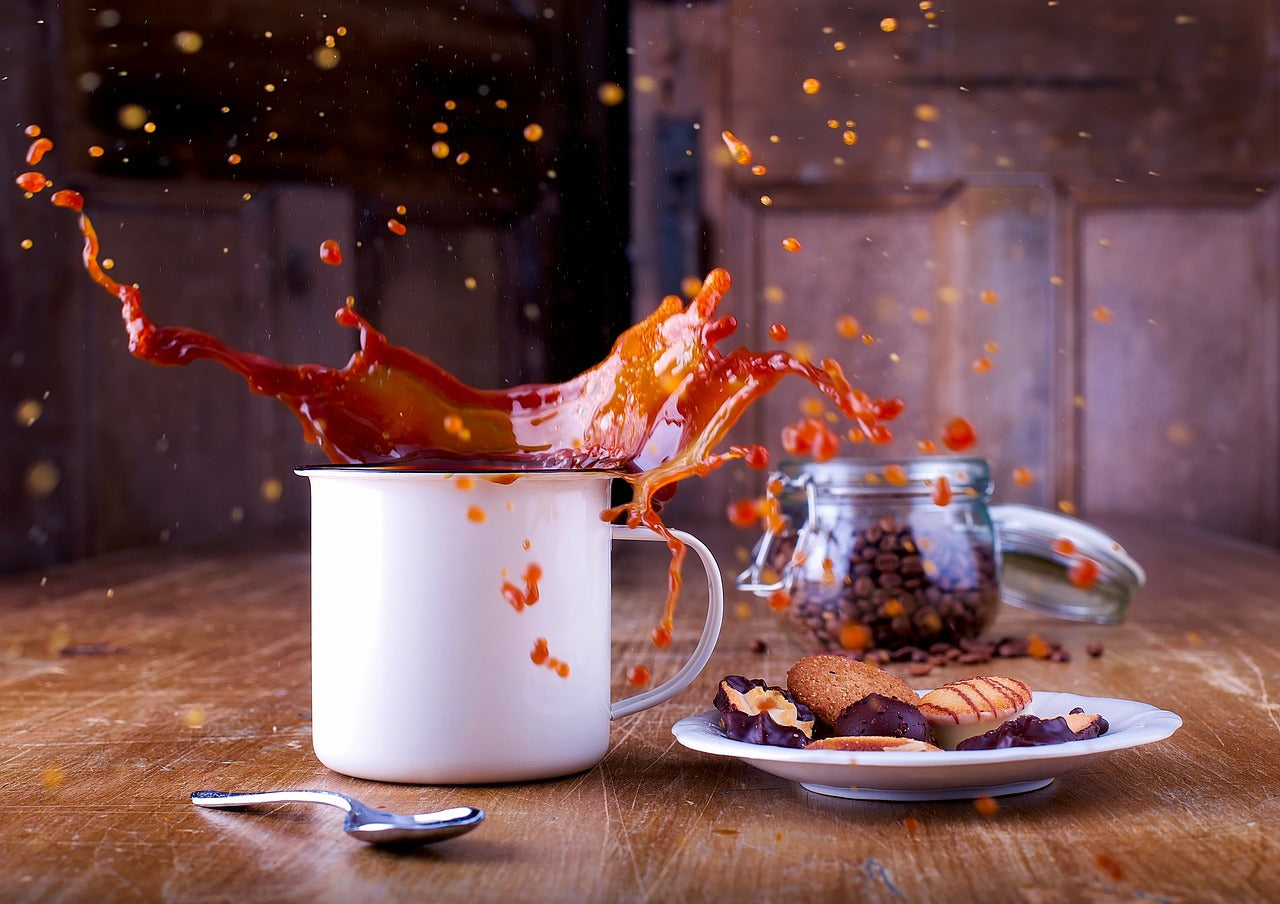
When you need an energy boost, should you reach for a cup of coffee or an energy drink?
Both options contain caffeine, but they differ in ingredients, health benefits, and long-term effects. In this guide, we’ll compare coffee and energy drinks, exploring their caffeine content, benefits, drawbacks, and effects on health to help you make the right choice.
Energy Drink vs. Coffee – A Quick Comparison
Before diving into the details, here’s a quick breakdown of the main differences:
| Feature | Coffee | Energy Drinks |
|---|---|---|
| Caffeine Content | 80–100 mg per cup | 80–300 mg per can |
| Ingredients | Natural coffee beans, antioxidants | Artificial flavors, sugars, vitamins |
| Energy Boost Duration | Gradual and sustained | Quick spike, followed by a crash |
| Health Benefits | Antioxidants, improved focus | Quick energy, often with added vitamins |
| Health Risks | Can cause jitteriness in high doses | Sugar crashes, artificial additives |
Now, let’s analyze each aspect in detail.
Caffeine Content – How Much is Too Much?
One of the key differences between coffee and energy drinks is their caffeine content, which refers to the amount of caffeine present in a given serving.
- A typical brewed coffee contains 80-100 mg of caffeine per cup.
- An energy drink may contain anywhere from 80 mg to 300 mg of caffeine, depending on the brand.
- Experts recommend keeping caffeine intake under 400 milligrams per day to avoid side effects like jitters and heart palpitations.
Experts recommend limiting daily caffeine intake to 400 mg to reduce the risk of side effects like jitters, heart palpitations, and disrupted sleep.
The Science Behind Caffeine – How It Works in Your Body
Caffeine is the key ingredient in both coffee and energy drinks, but how does it actually work?
Caffeine as a Stimulant
Caffeine works by blocking adenosine, a neurotransmitter that makes you feel tired. Instead, it increases dopamine and norepinephrine, making you feel more awake and alert.
- After 10-15 minutes, caffeine kicks in.
- Peak levels occur within 30-60 minutes after consumption.
- Caffeine has a half-life of 3-5 hours, meaning half the caffeine remains in your system after this time.
- Too much caffeine can cause jitters, anxiety, and insomnia.
Is More Caffeine Better?
- Coffee provides a steady, moderate caffeine intake.
- Energy drinks often have high doses of caffeine, leading to a quick burst of energy followed by a crash.
For those sensitive to caffeine, moderate coffee consumption may be a healthier choice.
Ingredients in Energy Drinks vs. Coffee
Coffee is a natural beverage made from roasted beans, while energy drinks contain a mix of artificial and natural ingredients.
What’s Inside Coffee

- Purely made from brewed coffee beans
- Contains antioxidants that promote heart health
- No added sugars or preservatives (unless you add them
What’s Inside Energy Drinks?

- Taurine, ginseng, and B vitamins for an extra energy boost
- Often loaded with sugar, artificial flavors, and preservatives
- Some brands offer sugar-free energy drinks, but they may contain artificial sweeteners
Key Takeaway: If you want a cleaner energy source, coffee is the better choice.
The Hidden Ingredients in Energy Drinks
Energy drinks come loaded with caffeine and other stimulants, promising a quick jolt of energy to those who consume energy drinks for that occasional energy boost. However, caffeine is a stimulant that, while providing energy as well, can also lead to unintended consequences if consumed in excess. While energy drinks might offer similar amounts of caffeine compared to regular coffee, they are often packed with sugars and other hidden ingredients that can exceed the daily recommended calories per day. In contrast, coffee is natural and its stimulant in coffee is typically better tolerated.
The case for coffee is strong, especially for coffee lovers who enjoy its rich flavors alongside their caffeine fix. The winner is coffee when it comes to providing a more balanced and sustainable source of energy. While it's true for coffee that its energy boost varies depending on how coffee depends on individual tolerance, the general recommendation is to limit their caffeine intake to 400 milligrams of caffeine per day for most adults. As energy drink wear off, the unexpected crash might leave you receiving more energy from your next cup of coffee. Ultimately, the unit of energy that one seeks should be balanced with health considerations in mind.
Unlike coffee, which is natural, energy drinks contain a mix of stimulants, vitamins, and artificial ingredients.
Taurine – The Mysterious Ingredient

Taurine is an amino acid found in many energy drinks. It’s often marketed as improving mental performance and endurance, but research is mixed.
📌 Fact: Taurine occurs naturally in meat, fish, and dairy, so most people don’t need it from an energy drink.
Artificial Sweeteners – Are They Safe?

Many sugar-free energy drinks use aspartame or sucralose instead of sugar. While they reduce calorie intake, studies show mixed results on their long-term effects.
❗ Some research suggests artificial sweeteners can disrupt gut bacteria and increase sugar cravings.
Health Benefits – Which One is Better?
Both coffee and energy drinks offer benefits, but which is healthier?
Benefits of Coffee
- Boosts brain function and improves alertness
- Contains antioxidants that support heart health
- May reduce the risk of certain diseases like diabetes
- Low in calories (if consumed without sugar)
Benefits of Energy Drinks
- Provides a quick burst of energy for intense activities
- Often contains added vitamins like B12 and taurine
- Convenient and ready to drink
However, many energy drinks contain sugar, which can lead to a sugar crash and weight gain.
Coffee vs. Energy Drinks – Performance & Athletic Benefits
Many athletes rely on caffeine for performance enhancement. But is coffee or an energy drink better for working out?
Energy Drinks for Athletes
⚡ Pre-workout boost – High caffeine levels help with explosive movements
⚡ Taurine & B vitamins – Some drinks claim to enhance endurance & focus
⚡ Electrolytes – Some contain sodium & potassium for hydration
Coffee for Athletes
☕ Boosts metabolism – Helps burn more calories during exercise
☕ Fat oxidation – Helps use fat as an energy source
☕ Less sugar – Unlike energy drinks, coffee doesn’t spike blood sugar
Which is better?
- For weight loss & endurance, coffee wins due to fat oxidation benefits.
- For high-intensity workouts, energy drinks may provide a quick performance boost.
Side Effects and Health Risks
While both coffee and energy drinks can help with energy and alertness, they also have drawbacks.
Risks of Drinking Too Much Coffee
- Can cause jitters and restlessness
- May lead to insomnia if consumed late in the day
- Can be acidic, leading to digestive issues
Risks of Energy Drinks
- High sugar content can lead to weight gain and diabetes
- Excess caffeine may cause heart palpitations
- Some energy drinks contain mixing energy drinks with alcohol, which can be dangerous
For a healthier choice, experts recommend moderate coffee consumption over frequent energy drink intake.
The Effects of Too Much Caffeine – Is It Dangerous?

Caffeine is beneficial in moderation, but excessive intake can have serious side effects.
Short-Term Effects of Too Much Caffeine
- Jitters & restlessness – Your heart rate increases, and anxiety may spike.
- Sugar Crash – If you drink many energy drinks, the sugar rush will wear off, leaving you more fatigued than before.
Long-Term Effects of Excess Caffeine
- Caffeine dependency – Over time, you may need more caffeine to feel energized.
- Heart complications – Studies link excessive caffeine to high blood pressure.
✅ Best Practice: The FDA recommends keeping caffeine intake under 400mg per day.
Is Black Coffee Healthier Than Energy Drinks?

Black coffee is considered one of the healthiest caffeine sources.
In addition to its health benefits, coffee offers a social advantage. Enjoying a freshly brewed cup at a local coffee shop not only provides a natural energy boost but also a chance to unwind and explore urban life—consider checking out our guide on things to do in Midtown Manhattan for some great local spots.
Why Black Coffee is Better Than Energy Drinks
In recent years, energy drinks have become increasingly popular as a quick energy boost for those needing a high dose of energy in a short time. Drinks like Red Bull and Monster Energy Drink are often favored for their convenience. However, it's important to note that while these drinks have become increasingly popular, coffee is generally considered a healthier alternative.
Both coffee and energy drinks contain caffeine, a stimulant that provides a quick boost of energy. However, coffee contains approximately 95 mg of caffeine per cup, while one can of Red Bull contains 80 mg of caffeine. This makes coffee a preferred choice for many seeking a sustained energy boost and increased alertness without the added sugars and artificial ingredients often found in energy drinks like Red Bull.
The effects of coffee are well-documented, with numerous studies highlighting its potential health benefits. Unlike energy drinks, which are often consumed in excess, coffee can be enjoyed leisurely in coffee shops, providing a social experience along with its energy-enhancing effects. Thus, while your favorite energy drink might offer a quick boost of energy, coffee offers a more balanced approach to managing your caffeine per day intake.
- Zero sugar, zero additives – Unlike many energy drinks, black coffee contains only natural caffeine.
- Packed with antioxidants – Supports heart health and brain function.
💡 Did You Know? People who drink moderate coffee consumption (2-3 cups per day) have a lower risk of stroke and heart disease.
Coffee Culture and the Social Experience
Beyond just the caffeine boost, coffee offers a rich cultural experience. Many enthusiasts cherish the atmosphere of local coffee shops, where they can relax, work, or socialize.
For example, exploring vibrant neighborhoods like Midtown Manhattan can lead you to some of the best coffee shops around. Check out our guide on things to do in Midtown Manhattan for a perfect blend of urban exploration and great coffee experiences.
What Happens When You Mix Energy Drinks with Alcohol?
Many people mix energy drinks with alcohol at parties, but this can be dangerous.
⚠️ The Risks of Mixing Energy Drinks with Alcohol
- Hides alcohol’s effects – Caffeine masks the feeling of being drunk, leading to overconsumption.
- Increases heart rate – A mix of stimulants and depressants can cause irregular heartbeat.
- Higher risk of accidents – Studies show people who mix caffeine and alcohol are more likely to engage in risky behavior.
✅ Best Practice: Avoid mixing alcohol with energy drinks—it increases health risks without any real benefits.

Caffeine in Coffee vs. Energy Drinks – Which Lasts Longer?
Both coffee and energy drinks contain caffeine as a stimulant, but their effects on energy levels differ.
How Long Does Caffeine Last in the Body?
- Coffee – Provides a steady energy boost for 3-5 hours.
- Energy Drinks – Cause a quick spike, but you may feel a crash within 2-3 hours.
💡 Key Takeaway: If you need long-lasting energy, coffee is the better choice.
